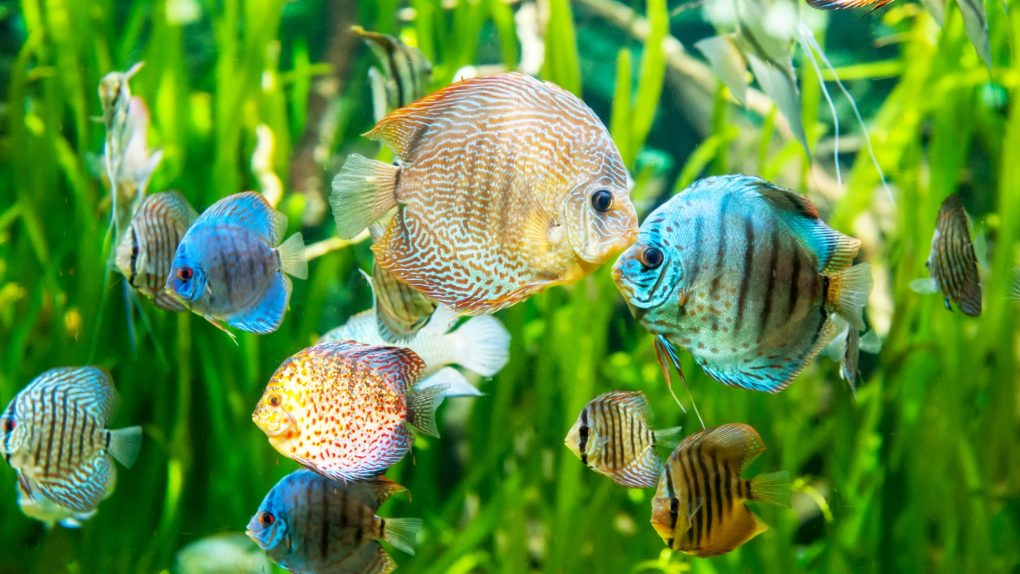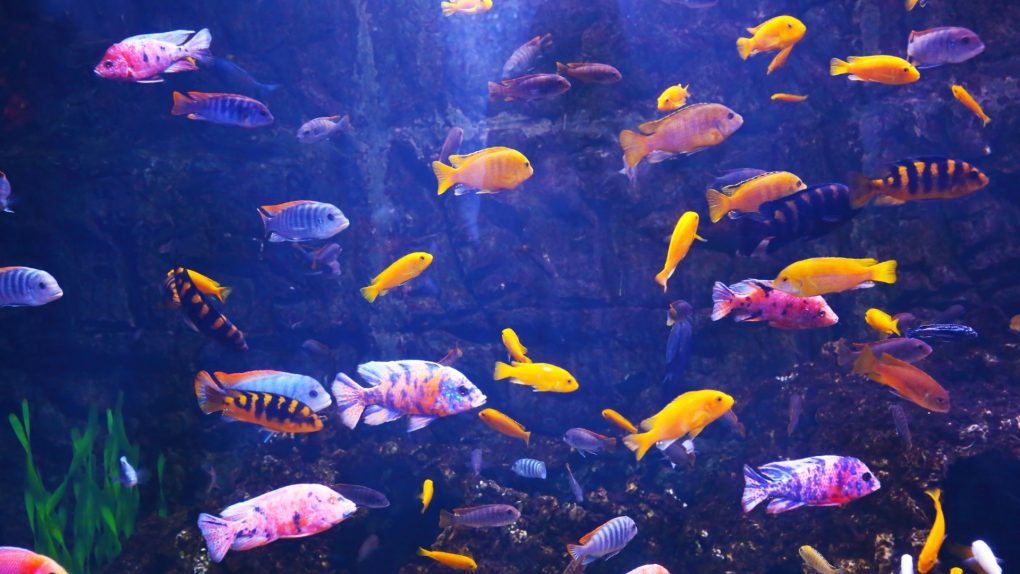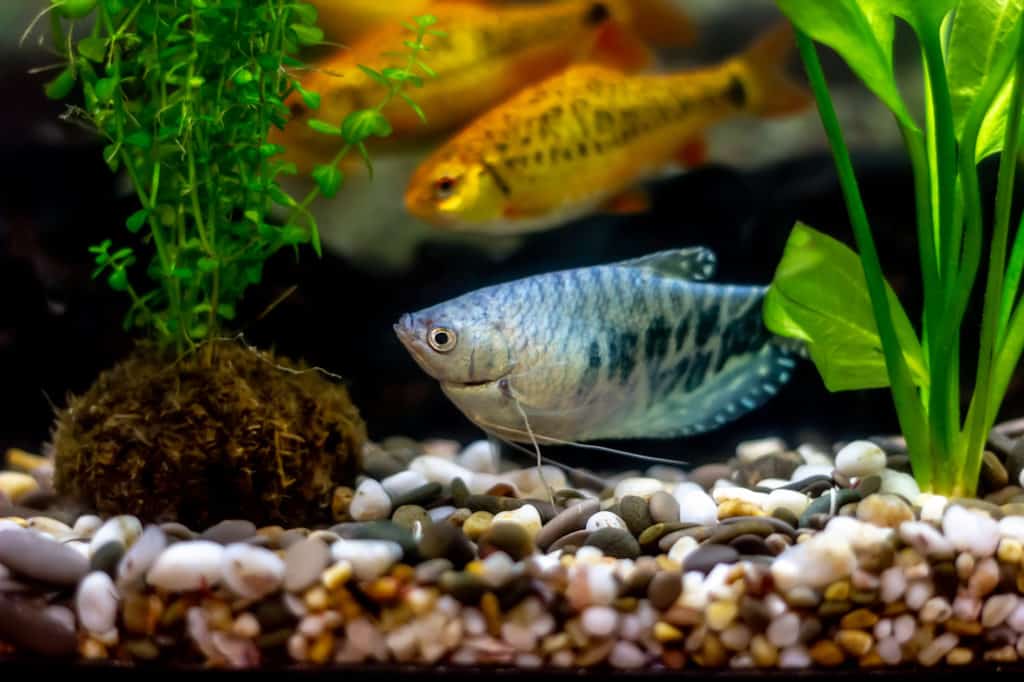How Long Do Aquarium Fish Live?
Aquarium fish can live for years. The average lifespan of a fish is between three and five years, but these numbers vary from species to species. Many factors affect the lifespan of an aquarium fish, such as tank size, water quality, and diet.
There are some fish that live up to 20 years, while others can only manage half about one or two years. There are also Japanese garden fish that live for over 30 years and there is always a chance to be randomly matched with such an animal. The longer a fish lives, the more time you have to care for them and enjoy their company. However, being so old means that they risk getting sick because of malnutrition or organ failure.

Table of Contents
What are some factors that affect the lifespan of an aquarium fish?
There are many factors that play a role in the lifespan of an aquarium fish. Temperature, light, CO2, water quality and food are just some of the most important factors. A fish with good living conditions has a higher likelihood of living longer than another without it.
1. Temperature
The temperature of the aquarium determines if a fish is healthy or not. If it is too cool, then that does have an effect on lifespan. In general, most aquatic animals thrive in water temperatures between 78 to 82 degrees Fahrenheit (25 – 28 Celsius). Lower than normal temperatures can cause many problems, including diarrhea.
Water temperature has a major effect on lifespan because some fish require warm water to stay healthy, while others prefer it cold.
2. Light
Light is one of those factors that seems to be a hit-or-miss. One fish species might prefer bright light, while another prefers natural sunlight coming from above the tank The length and intensity of this light also has an effect on their lifespan.
3. CO2 Level
CO2 level is a very important factor as well. When an aquarium starts growing plants, there will be more CO2 available in the water because of the photosynthesis process taking place by all those plants. If you increase your tank’s viewing and live plant selection to help reduce this problem, it can make a big difference in the fish’s lifespan.
The water level and filter system will also help to maintain or increase CO2 levels as well, but they need frequent maintenance and it is not possible to establish an ideal ratio between plants and their life support systems.
4. Water Quality or Nitrate Levels
There are different types of water quality to keep in mind when trying to establish healthy fish populations. Oxygen level, pH balance, hardness and nitrates are the most important ones right now for community aquaculture tanks over 1 gallon because these factors help in a lot of biological processes.
Some water quality parameters, such as pH and oxygen level balance have a direct effect on the fish’s lifespan, while others depend heavily on environmental conditions that are not predictable. Nitrates also indirectly affect longevity through plants that remove it from the tank.

What are some types that have the highest lifespan in an aquarium fish tank?
Almost all freshwater fish can live up to 15 yrs! There are also many other fish varieties however each species will vary. The Caribbean Anaconda for example has a 30-35 year life span while the common Goldfish lives 10 to 15 years. While some other types that have a longer lifetime are Fairy Wrasse, the Siamese Algae Eater and Puffer fish – these last for many decades.
Aquarium Fish Disease: Fact or Fiction?
Fish diseases are a common occurrence in aquariums. Fish can contract diseases from other fish, water, or food. There are many types of disease that can impact both the short-term and long-term health of your fish. Some of the most common diseases include bacterial infections, parasites, and viruses, depending on the kinds of fish you keep. Primary diseases that impact a fish’s health include fin and tail rot, parasite infections, black spot disease in betta fishes, constipation and ich.
As far as parasites go there is a great deal of debate over the effect they really have on your aquarium water quality. Some people do, and some don’t so it’s wise to research the parasites you plan on keeping your fish around. For instance, if I am running an aquarium with shrimp tank mates only then certainly none of those things will impact my water quality since they do not require any oxygen or other sustainable sources of nutrients.

Life Expectancy of Freshwater Fish
Most freshwater fish live relatively short lives. Although the lifespan of fish is highly variable, most are expected to live around five years. Some freshwater game fish, like bettas and mollies, can live several years. Achieving this lifespan is generally dependent on the species of fish you keep, its water quality and conditions, whether any are sick or dying in your aquarium, stress factors if any are introduced into your tank (new owners may strip equipment out until they get everything running properly), how often it’s fed , and how much it’s moved.
Life Expectancy of Saltwater Fish
As with freshwater fish life expectancy is also highly variable. But there are some generalizations that can be made about living conditions, diet and feeding habits in addition to stressors like disease or accidental death. Saltwater fish generally go through different stages in their life cycles. The larval stage lasts from about a week to several months depending on species. The juvenile stage runs all the way up to maturity, depending once again upon the species and its environment. Adult fish live longer as now there’s no vitality lost between stages not unlike with house pets like dogs or cats which grow “old and tired.” However, it is the largest, fastest growing fish that tend to live longest.
How long do fish live in their natural habitats?
Native freshwater fish live an average of 5 years. These are the same lengths which can be expected for all sorts of aquariums, even those without so much as a cool water filter. It’s possible that some saltwater fish will age faster, grow quicker or die early because they have to fight harder to survive in their surroundings. The predominant belief is that female fish live longer than males 10 years, although it’s all highly subjective with different studies offering contradictory results.